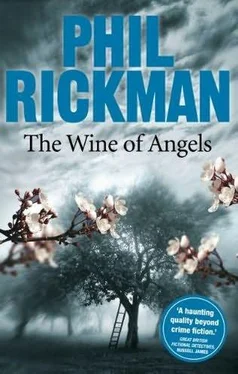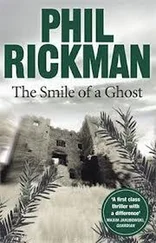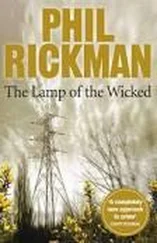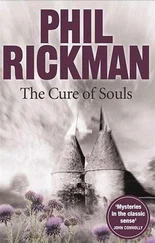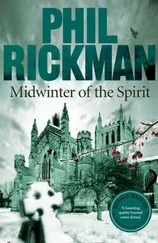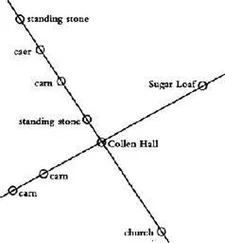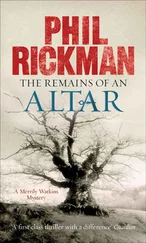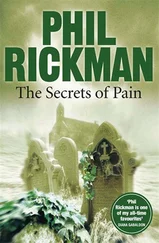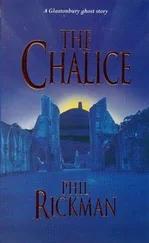The Wine of Angels
(The first book in the Merrily Watkins series)
A novel by Phil Rickman
Tears are the Wine of Angels ...
the best ... to quench the devil’s fires.
from a seventeenth-century meditation attributed to Thomas Traherne
Old Winter’s frost and hoary hair
With garland’s crowned ...
Thomas Traherne,
Poems of Felicity
TWISTY OLD DEVIL.
Looked as if it held a grudge in every scabby branch, and if you touched it there’d be sharp, pointy bits, like thorns. And it wouldn’t give you any fruit, on principle, wassail or no wassail, because, left to rot, apple trees ...
... they grows resentful.
Merrily’s grandad had told her that once, when she was a little girl. Frightening her, because you always thought of apples as cheerful and wholesome. Oaks could be gnarled and forbidding, pines scraggy and cruel. But apple trees were essentially good-natured, weren’t they? All the same, every evening for weeks afterwards, Merrily would go down to the orchard and wish the trees a wary goodnight, assuring them they could always count on being looked after as long as she was around.
This was Merrily’s problem. Always felt responsible.
Perhaps, to get Grandad Watkins’s point, you had to see a tree as old as this one on a night this cold, the orchard glittering grimly in bilious lamplight.
Merrily shivered like a little rabbit inside her tired, old, fake Barbour, stamping her boots on the stone-hard earth in the clearing.
There’d be about thirty of them, strangers now, but people she’d have to get to know very well if she decided to go for it. They didn’t look over-friendly at the moment, all hunched up in a hand-rubbing, steam-breathing circle, like tramps around a brazier.
Except there wasn’t a brazier. Just this frosted, naked apple tree, the biggest one remaining in an orchard left to rot for years. But no ordinary apple tree – according to Mrs Caroline Cassidy, of the famous Cassidy’s Country Kitchen, this was the Apple Tree Man.
The very spirit of the orchard.
So now we all know. Merrily turned away and sighed, and the sigh recorded itself on the frigid air as a tiny white cloud. Uncle Ted, who’d excused himself because of a cold, thought it might be an interesting experience for her. To observe a cross-section of the parish. Go undercover, armed with Ted’s word-portraits of the major players. All of them at least occasional churchgoers. But wasn’t this ritual just a bit ...?
‘Barbaric,’ Miss Lucy Devenish muttered, more loudly than she needed to. ‘Utterly barbaric. Isn’t seemly. Isn’t local. Isn’t right. ’
Actually pagan had been the word Merrily had in mind, but barbaric would do. According to Uncle Ted, Miss Devenish had been muttering about this for most of the past week. Been along to a meeting of the parish council to demand they get it stopped. Which, of course, was beyond the powers of the parish council to do even if they’d wanted to offend Councillor Powell, who owned the orchard. She’d also have known better than to petition the vicar. Lesson one, Uncle Ted said: keep your nose out where you can.
‘Isn’t traditional to the area,’ Miss Devenish said. ‘And so it can’t be right. Do you see my point?’
She wore a big, wide-brimmed hat and a camel-hair poncho. Looked like an old Red Indian scout, talked like a headmistress. Delightful old girl, Uncle Ted had said. May, however, be some sort of witch. Don’t be tempted to get too close. But Miss Devenish was talking to her.
‘Well ... picturesque though,’ Merrily said feebly. ‘In a Christmas card sort of way.’
Some folk were holding up hurricane lamps, throwing oily light on frosty bark, bringing up a dull lustre on the barrels of the shotguns.
Which were not very Christmas card.
Seven of them. Carried by local farmers and landowners and patrons of the Cassidy restaurant who happened to be country-sports enthusiasts or clay-shooters. Lesson seventeen: where bloodsports are concerned, sit on the fence and hope for the best.
‘Oh hell,’ said Lucy Devenish. ‘Here it comes.’
Smiling a troublemaker’s smile at the arrival of the organizer, Mr Terrence – Not Terry, If You Don’t Mind – Cassidy. Long, herringbone-tweed overcoat, Russian-style furry hat. Learned-looking, in half-glasses.
‘Right. Are we all here? Good, good.’ Mr Cassidy positioned himself under a lamp on a stick. ‘But do we all know why we’re here?’
Like a teacher addressing an infants’ class. According to Uncle Ted, who’d lived here most of his adult life, the secret of being accepted in the village was to keep your head well down for two years’ minimum. But the Cassidys clearly weren’t keeping-your-head-down people. While her husband was lecturing the poor primitive yokels about the importance of their traditions, Mrs Caroline Cassidy, all kitted-out for skiing in the Alps, was arranging plastic beermugs on a wooden picnic table beside the frost-rimed cask of cider. Occasionally flicking a glance towards Miss Devenish, who was Trouble.
Through the hoary trees behind her, Merrily could see the village lights: yellow, amber and red behind drawn curtains: very cosy, but strangely far away. By day, you would have seen the church through the naked trees. At night, the orchard was a separate place.
‘... and so, people, we revive a very ancient custom.’
Mr Cassidy had a high, nasal voice, like the wind down a drainpipe. He reminded them that next May would see the start of the first Ledwardine Festival: a summer-long smorgasbord of music, poetry, drama, houses and gardens open to the public, guided tours. A major exhibition of Our Heritage.
Lucy Devenish snorted.
Mr Cassidy raised his voice. ‘And as fine local cider was that heritage, we intend ... that it should be revived.’
Pause for gasps that didn’t come. Nice enough idea, Merrily thought, but it was never going to be any more than a gimmick. The cider trade in Herefordshire was pretty well sewn up, most growers in these parts selling their apples in bulk to Bulmers or Dunkertons. Anyway, most of the orchards hereabouts had been grubbed up during the great Victorian cider-slump.
‘We shall be recommending local cider at our own restaurant. The Black Swan, will also, I trust, promote it. But, of course, the creation of this venerable beverage depends upon obtaining a significant crop of the famous Pharisees Red. As grown for centuries, in this very orchard, by ...’
Cassidy extended an arm, like a variety-show compere.
‘... the Powell family.’
Everybody stared across at Garrod, farmer and county councillor, and his son Lloyd. And Grandad – Edgar, was it? – gripping the stock of the family shotgun with fingers like knotty little roots and staring directly at Merrily. But not seeing her, she was sure. He wasn’t here at all, wasn’t old Edgar.
Everybody else merely didn’t want to be here. Because, of course, it was pointless, it was artificial, it had been put on mainly for the Press who hadn’t bothered to turn up. And it was so ... bloody ... cold.
Merrily pulled up the hood of her fake Barbour. This wasn’t the right attitude, was it? She should be cheerful, hearty. Joining in. But this ... this facsimile of rural life as it was thought to have been lived, this ‘traditional’ gathering involving, for the most part, incomers, while the members of the old, yeoman families sat at home watching the late movies with cans of lager and the remains of a tandoori ... well, this also left her cold.
Читать дальше
